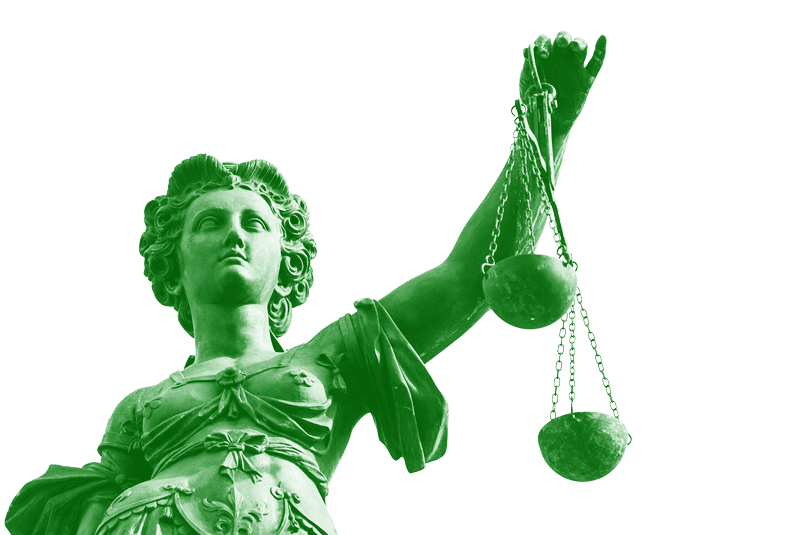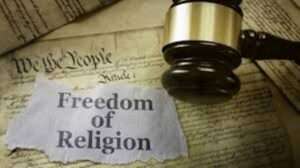Unless noted, the following allegations come from Heckman's complaint, accepted as true for the purposes of this motion.
A village [of Shannon] ordinance prohibits sexual harassment. Significantly, the ordinance is not limited to prohibiting sexual harassment in the workplace. According to the ordinance, "It is a policy of the village to prohibit harassment of any person by any municipal official, municipal agent, municipal employee or municipal agency or office on the basis of sex or gender." The ordinance then identifies conduct that may constitute sexual harassment. The list includes, among other things, "sexual innuendos, suggestive comments, insults, humor, and jokes about sex, anatomy or gender-specific traits."
Heckman is no stranger to Shannon's Village Board and Village President. She often attended village board meetings and criticized village policies. In 2025, she ran unsuccessfully for village president, losing to Ryan Shaner….
Heckman's strained relationship with village officials came to a head on May 6, 2025. That night, after a village board meeting, Heckman went to a local bar. Also at the bar were Meinders, another village trustee (Steve Miller), and the village's chief of police (Michael Lewis). Heckman discussed village business with Meinders and Miller. At one point, Heckman pulled her left arm out of her shirt to show the bartender her new tattoo. Meinders saw this and said, "Here I thought you were going to whip your titties out and flash me." As Heckman then attempted to leave, Meinders said, "Sitting next to you all night has me horny, I'm going home to bother my wife." Meinders later falsely told an unnamed community member that Heckman had an inappropriate relationship with another member of the community. Meinders also allegedly told community members that he would not be held accountable for his conduct because of his position as trustee.
On June 20, 2025, Heckman met with President Shaner and Trustee Kyle Ruter and described the May 6 events at the bar. Heckman stated her opinion that Trustee Meinders' statements were made in retaliation for her active participation in village board meetings and criticism of village policies. She also told President Shaner and Trustee Ruter that because of Trustee Meinders' retaliation she decided not to run for village trustee. Heckman asked the village board to discipline Trustee Meinders for his conduct, but Shannon didn't.
A few days later—on June 25, 2025— Heckman met with Chief Lewis, who was acting on behalf of the Village. Chief Lewis was empowered by Trustee Ruter (who was acting Village President due to President Shaner's absence) to act on behalf of the Village. At the meeting, Chief Lewis told Heckman that Shannon would ignore an alleged ordinance violation of Heckman's if she remained silent regarding Trustee Meinders' conduct at the bar.
The next day, Heckman sought a variance to sell ice cream from one of her businesses. But the Village never responded to her request. During the same period, the Village approved another resident's variance request. What's more, Shannon has warned Heckman about other alleged ordinance violations, while ignoring another resident's similar ordinance violations.
Later, the Village pressured Chief Lewis to misrepresent the circumstances of the June 25 meeting. According to the Complaint, Chief Lewis wouldn't do so. His refusal resulted in his suspension under the pretense of a missing receipt.
In September, President Shaner made a Facebook post mentioning allegations about the conduct of Heckman's six-year-old son, in which the child allegedly "repeated words of hostility he had clearly heard at home." …
The court rejected Heckman's federal sexual harassment claims based on Meinders' statements at the bar, which had been brought under 42 U.S.C. § 1983, because it concluded Meinders hadn't been acting as a village official:
To survive Defendants' motion to dismiss [as to a § 1983 claim], Heckman must plausibly allege that the person who deprived her of her rights was "acting under color of state law." "A public employee's acts occur under color of state law when they relate to official duties." Plaintiffs must allege that a municipal actor's invocation of state authority somehow facilitated or enabled the alleged misconduct….
Heckman has not plausibly alleged Meinders was acting under color of state law when he allegedly made these rude, harassing, and unprofessional statements in a public bar. No state authority is needed to be a creep in a local bar. Any jamoke can do that. State law doesn't empower leches to make statements like the ones Trustee Meinders is accused of making in this context. And sexual harassment certainly wasn't among Meinders' official duties. What's more, it's insufficient that the sexual harassment occurred proximately to a discussion of town business at a local bar. Instead, state authority must have "facilitated or enabled the alleged misconduct." The same holds true to the extent that Heckman attempts to plead that Meinders was acting under color of law because he is a prominent figure in Shannon.
Because Heckman hasn't pleaded any facts plausibly alleging that Meinders used state authority to facilitate or enable the alleged sexual harassment at a public bar, she hasn't plausibly alleged that Meinders was acting under color of law. Instead, she's only alleged that Meinders is a sexual creep. That the alleged sexual creep is a village trustee doesn't make his action enabled by state law….
The court, however, allowed Heckman's First Amendment retaliation claim to go forward; an excerpt:
[A.] First Amendment Claim Against Trustee Meinders …
Viewing the allegations in favor of Heckman and drawing all reasonable inferences in her favor establishes that she has alleged a plausible First Amendment retaliation claim against Trustee Meinders…. The Complaint alleges that shortly after Heckman complained to President Shaner about Trustee Meinders' clear violation of Shannon's sexual harassment ordinance, a series of events [rained] down on Heckman. She was told to play ball. But when she didn't, her variance request was ignored while another resident's variance request was granted. What's more, Shannon then warned Heckman about alleged ordinance violations, while ignoring another resident's similar ordinance violations. Finally, President Shaner—who was empowered to take action against Trustee Meinders for violating the sexual harassment ordinance—then publicly shamed Heckman and her six-year-old son.
It's reasonable to draw the inference that the village's punitive actions against Heckman came as soon as Heckman started complaining to President Shaner, other village trustees, and Chief Lewis (when he was acting on behalf of the village) about Trustee Meinders' statement at the bar. It's thus reasonable to infer that Trustee Meinders spurred the Village to take these actions. Causation and intent can be evidenced—especially at the motion to dismiss stage—by suspicious timing.
[B.] First Amendment Claim Against [the Village of] Shannon
Viewing the allegations in favor of Heckman and drawing all reasonable inferences in her favor establishes that she has alleged a plausible … claim against Shannon. The allegations show a series of bad acts by village trustees and the village president, inviting this Court to infer from them that the policy-making level of government was bound to have noticed what was going on but failed to do anything, which encouraged or at least condoned misconduct of these officials. At the pleading stage, there is enough to find a plausible First Amendment claim against Shannon….
In addition to meeting the Monell requirement, Heckman has plausibly alleged that she engaged in First Amendment protected activity by attending village board meetings and then petitioning the village to take action against Trustee Meinders after his statements at the bar. Heckman also plausibly alleges she suffered adverse action that would likely deter future First Amendment activity in that the adverse actions—including the sexual harassment, refusal to punish Trustee Meinders for his sexual harassment, the refusal to grant a variance to sell ice cream, and President Shaner's shaming of both Heckman and her child—caused, among other things, Heckman not to run for trustee. Finally, the reasonable inference based upon the sequence of events and their proximity in time is that Heckman's speech was at least a motivating factor for Shannon's retaliatory conduct….




Show Comments (3)